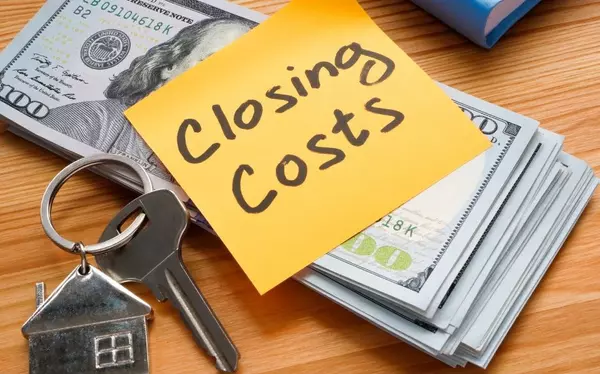Understanding Contract Timelines in the Home Buying Process

Understanding Contract Timelines in the Home Buying Process
Introduction
The home buying process can be both exciting and overwhelming, particularly for first-time buyers. One of the key aspects to successfully navigating this journey is understanding the various contract timelines involved. From making an initial offer to closing the deal, each step has its own set of deadlines and requirements that need to be met.
Understanding contract timelines is crucial for several reasons. First, it helps buyers stay organized and ensure they don’t miss important milestones that could delay or jeopardize the purchase. Second, it provides clarity on what to expect at each stage, reducing stress and uncertainty. Finally, knowing these timelines allows buyers to make informed decisions and better negotiate terms that suit their needs.
Key Takeaways
- Pre-Contract Phase: Financial readiness, pre-approval for a mortgage, and choosing the right realtor are essential. House hunting can take weeks to months.
- Offer to Acceptance: Craft a competitive offer and prepare for negotiations. Expect back-and-forth communication and make an initial deposit upon offer acceptance.
- Contract Phase: Schedule inspections and appraisals promptly. Address any contingencies like financing, inspection, and appraisal within 10-21 days. Finalize mortgage approval within 30-45 days.
- Closing Preparation: Ensure a clear title through a title search and secure homeowner's insurance. Schedule a final walkthrough 24-48 hours before closing to confirm the property's condition.
- Closing Day: Review and sign key documents, settle final payments and closing costs, and complete the transfer of ownership by recording the deed. Receive the keys to your new home within 24 hours.
Pre-Contract Phase
The pre-contract phase is a critical part of the home buying process, setting the foundation for a smooth and successful transaction. It begins with initial research and preparation, where financial readiness is key. Ensuring your finances are in order, saving for a down payment, and understanding your credit score are essential steps. Getting pre-approved for a mortgage is the next crucial milestone, providing you with a clear budget and demonstrating to sellers that you are a serious buyer.
Finding the right realtor is another significant step in this phase. A good realtor will guide you through the process, offering valuable insights and helping you avoid potential pitfalls. Take time to choose a realtor who understands your needs, has a strong track record, and communicates effectively. Initial consultations with your realtor are important for setting expectations, discussing your budget, preferred locations, and must-have features.
House hunting is an exciting yet demanding part of the pre-contract phase. The timeline for finding the right home can vary greatly, depending on market conditions and personal preferences. On average, it might take a few weeks to several months. During this period, it’s crucial to stay organized and patient. When you find a home you like, carefully consider the timing and strategy for making an offer, ensuring it aligns with your financial situation and market conditions.
Offer to Acceptance
The offer to acceptance phase is a pivotal part of the home buying process, where your preparation and research culminate in making a formal offer. Crafting a competitive offer is essential to stand out in a potentially crowded market. This involves determining a fair price based on comparable properties, current market conditions, and your budget. Once the offer is submitted, the typical timeline for receiving a response can vary but generally ranges from 24 to 72 hours.
Negotiations often follow the initial offer, covering common points such as price adjustments, closing costs, and contingencies. This back-and-forth communication can span a few days to a week or more, depending on the complexity of the negotiations and the responsiveness of both parties. Staying flexible and maintaining clear communication through your realtor can facilitate smoother negotiations.
Once an offer is accepted, the process moves quickly. The next steps involve making an initial deposit, also known as earnest money, which shows your commitment to the purchase. This deposit is typically due within a few days of offer acceptance. Following this, the timeline involves scheduling inspections, appraisals, and securing final mortgage approval. Understanding these timelines and staying proactive can help ensure a seamless transition from offer to acceptance, setting the stage for a successful closing.
Contract Phase
The contract phase is a crucial period in the home buying process, where thoroughness and attention to detail are essential. One of the first steps in this phase is scheduling and completing home inspections. Home inspections typically take place within a week of the offer acceptance and provide a detailed assessment of the property’s condition. The timeline for receiving the inspection report is usually a few days, allowing buyers to identify any issues that may need addressing.
Simultaneously, the appraisal process is initiated by the lender to ensure the home’s value aligns with the loan amount. The appraisal generally takes about one to two weeks. The results of the appraisal can impact the final mortgage approval, making it a critical step in the contract phase.
Contingencies play a significant role during this time. Common contingencies include financing, inspection, and appraisal. Each of these must be resolved within specified timelines, often within 10-21 days. For instance, if the inspection reveals significant issues, buyers may negotiate repairs or adjustments to the sale price. Financing contingencies ensure that the buyer secures the mortgage loan within the agreed period.
Securing financing involves finalizing mortgage approval. This process includes a detailed review of financial documents, credit history, and the appraisal report. The timeline for mortgage processing and approval can take anywhere from 30 to 45 days. Being proactive and responsive to lender requests can help expedite this process and keep the purchase on track.
Closing Preparation
Closing preparation is a vital phase in the home buying process, ensuring all necessary steps are completed for a successful transfer of ownership. A key component is the title search and obtaining title insurance. A clear title is crucial as it confirms there are no legal issues or claims against the property. The timeline for a title search typically ranges from a few days to a couple of weeks. Once the title is confirmed clear, obtaining title insurance protects against future claims or disputes over property ownership.
Securing homeowner’s insurance is another critical step. This insurance provides coverage for potential damages and losses, safeguarding your investment. It's important to shop around and choose a policy that offers comprehensive coverage. The timeline for securing homeowner’s insurance and providing proof to your lender usually aligns with the closing date and should be completed a few weeks before closing.
Scheduling the final walkthrough is the last major task before closing. This walkthrough is typically conducted 24 to 48 hours before closing. During the walkthrough, buyers should verify that agreed-upon repairs have been made, appliances are in working order, and no new issues have arisen since the last visit. This final check ensures the property is in the expected condition and ready for transfer, paving the way for a smooth and successful closing day.
Closing Day
Closing day is the culmination of the home buying process, where ownership officially transfers from seller to buyer. The day begins with reviewing and signing documents. Expect to sign key documents such as the loan agreement, promissory note, deed of trust, and the closing disclosure. It's important to carefully review each document, which can take a few hours, ensuring all terms and conditions are understood and correct.
Final payments and closing costs are also settled on closing day. Closing costs typically include loan origination fees, title insurance, escrow fees, and property taxes, amounting to about 2-5% of the home’s purchase price. The timeline for making these final payments is usually immediate; funds must be transferred to the escrow company before or during the closing meeting.
The transfer of ownership occurs once all documents are signed and payments made. This includes recording the deed with the county, officially documenting the change in property ownership. The timeline for recording the deed can vary but often happens the same day or within 24 hours. Once recorded, the buyer receives the keys to their new home, marking the end of the buying journey and the beginning of homeownership.
Conclusion
Understanding contract timelines in the home buying process is essential for a smooth and successful transaction. From the initial research and preparation to the final steps of closing day, each phase has specific deadlines that must be met. By staying organized, proactive, and informed about these timelines, buyers can navigate the process with greater ease and confidence. This knowledge not only helps avoid delays and complications but also empowers buyers to make informed decisions and negotiate effectively. Ultimately, a clear grasp of contract timelines ensures a seamless transition from making an offer to becoming a proud homeowner.
Categories
Recent Posts










